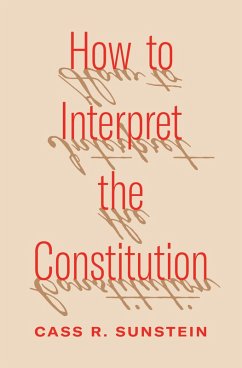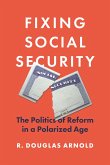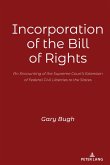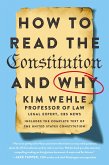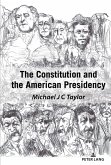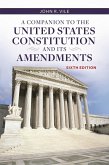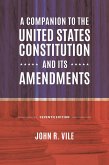From New York Times bestselling author Cass Sunstein, a timely and powerful argument for rethinking how the U.S. Constitution is interpreted
The U.S. Supreme Court has eliminated the right to abortion and is revisiting other fundamental questions today-about voting rights, affirmative action, gun laws, and much more. Once-arcane theories of constitutional interpretation are profoundly affecting the lives of all Americans. In this brief and urgent book, Harvard Law School professor Cass Sunstein provides a lively introduction to competing approaches to interpreting the Constitution-and argues that the only way to choose one is to ask whether it would change American life for the better or worse. If a method of interpretation would eliminate the right of privacy, allow racial segregation, or obliterate free speech, it would be unacceptable for that reason.
But some Supreme Court justices are committed to "originalism," arguing that the meaning of the Constitution is settled by how it was publicly understood when it was ratified. Originalists insist that their approach is dictated by the Constitution. That, Sunstein argues, is a big mistake. The Constitution doesn't contain instructions for its own interpretation. Any approach to constitutional interpretation needs to be defended in terms of its broad effects-what it does to our rights and our institutions. It must respect those rights and institutions-and safeguard the conditions for democracy itself.
Passionate and compelling, How to Interpret the Constitution is essential reading for anyone who is concerned about how the Supreme Court is changing the rights and lives of Americans today.
The U.S. Supreme Court has eliminated the right to abortion and is revisiting other fundamental questions today-about voting rights, affirmative action, gun laws, and much more. Once-arcane theories of constitutional interpretation are profoundly affecting the lives of all Americans. In this brief and urgent book, Harvard Law School professor Cass Sunstein provides a lively introduction to competing approaches to interpreting the Constitution-and argues that the only way to choose one is to ask whether it would change American life for the better or worse. If a method of interpretation would eliminate the right of privacy, allow racial segregation, or obliterate free speech, it would be unacceptable for that reason.
But some Supreme Court justices are committed to "originalism," arguing that the meaning of the Constitution is settled by how it was publicly understood when it was ratified. Originalists insist that their approach is dictated by the Constitution. That, Sunstein argues, is a big mistake. The Constitution doesn't contain instructions for its own interpretation. Any approach to constitutional interpretation needs to be defended in terms of its broad effects-what it does to our rights and our institutions. It must respect those rights and institutions-and safeguard the conditions for democracy itself.
Passionate and compelling, How to Interpret the Constitution is essential reading for anyone who is concerned about how the Supreme Court is changing the rights and lives of Americans today.
Dieser Download kann aus rechtlichen Gründen nur mit Rechnungsadresse in A, D ausgeliefert werden.

